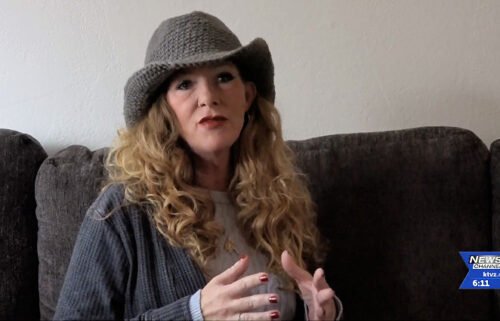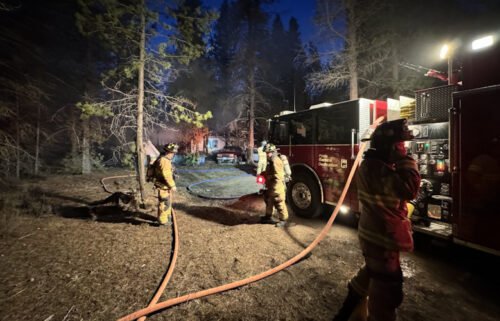Four Rivers Vector Control District notes more mosquitoes this year; residents deal with ‘a pretty bad year’
BEND, Ore. (KTVZ) -- In the Three Rivers area and beyond, they're trying to slap away a major nuisance.
The Four Rivers Vector Control District warned of a big hatch of mosquitoes and has been out spraying their green bug-killer.
"You go on a walk and you get back home and you get 50 bites on you," Three Rivers resident Miguel Gonzalez said Monday.
Gonzalez owns an auto detailing company and has had to change his hours to reduce his exposure to swarms of mosquitoes.
Other residents in Three Rivers, which is in the southern part of Deschutes County, report the mosquitoes are more aggressive than previous years.
“This is a pretty bad year," Gary Hecht said. "We’ve had a few bad years before, but not as bad as this."
Hecht has lived in the Three Rivers area since 1997, and said the shifting weather may play a part, but he’s noticed something else.
"I’ve seen a lack of birds and especially bats in the area," Hecht said. "Bats like to eat mosquitoes.”
In his work as a contractor, he said the mosquitoes slow the process, and even with mosquito spray, he still goes home with plenty of bites.
Rowin Giffin, also a contractor, was born and raised in Central Oregon and said he has never experienced mosquitos of this magnitude.
"You’re trying to do stuff - they’re in your ear, in your face," Giffin said. "I don’t want to be lathering up every 20 minutes with mosquito spray and getting eaten alive. That sucks."
In a statement to NewsChannel 21, the Four Rivers Vector Control District shared its efforts to reduce the impact of the mosquitoes.
"Crews are spraying Bacillus thuringiensis israelensis on standing water along the banks of the Little Deschutes River, and in many of the surrounding neighborhoods. Additionally, it's also applied BTI in a granular form by helicopter in the middle of May and have multiple fog trucks driving as long as possible."
It says BTI allows them to kill large amounts of mosquitoes without negatively impacting creatures, pets, or humans.
As for why things are so severe now, the district pointed to increased water levels.
"More snowpack melting into the little river, on top of a very wet spring, (resulted) in higher than normal water levels in the Little Deschutes River. This is causing it to flood over the banks and spread into the surrounding areas that have been mostly, if not completely, dry for three-plus years. Some areas have not seen water in over 10 years.
"The biggest part of why this is a problem for mosquitoes- they never stopped laying eggs in all of those flood zones, and the eggs will stay dry on the ground for many years and wait until it floods. When the water reaches a suitable level, then multiple years worth of eggs will hatch continuously. In the right conditions, a mosquito can go from egg, through four stages of larvae and pupae, to flying in a matter of 8-15 days. This process is repeated over and over, as long as the weather permits.
"When the water drops back below the banks and the sun dries the marshes, the mosquitoes will significantly decline in numbers."
For now, residents say they're staying covered, and in some cases, staying indoors.
"It's hard for my wife and I to even sit out on our back deck," Hecht said.
The district recommends DEET 40% or better to spray over all exposed skin and clothing. Hecht also wants to remind people to use mosquito repellant on their pets.




